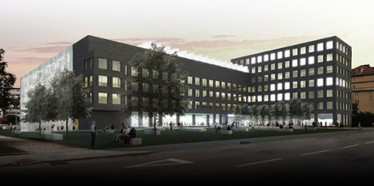
Public lectures delivered as part of habilitation procedure
The habilitation lecture Mgr. Pavel Rychlý, Ph. D. will be held on Tuesday November 3, 2015 from 10:45 in the conference room B517.
Lecture title: Why we need even bigger text corpora.
Abstract: The first text corpus suitable for a linguistic research was British National Corpus containing around 100 million words. Current costs of creating such corpus is only a fraction of costs at that time. There are corpora containing ones or tens of billions of words for the most-spoken languages. Many text processing tools are not able to process such amount of data effectively, that rise the question: do we really need such big corpora? In the presentation, we are going to show which applications need them.
The habilitation lecture RNDr. Jan Bouda, Ph. D. will be held on Tuesday November 10, 2015 from 10:00 in the lecture room A318.
Lecture title: Theoretical computer science in quantum world
Abstract: Our world is controlled by the laws of quantum physics. Traditional theoretical computer science is based on classical physics, and does not describe our world in full generality. Are the results of theoretical computer science valid in the real world, or just in the Turing machine? Do information theory, computational complexity, automata, and formal languages have any real world relevance? In this talk I will try to persuade the audience that despite the highly restrictive computation and information model traditional theoretical computer science uses, many results are still valid and it is not necessary to completely abandon the research in traditional theoretical computer science
The habilitation lecture Fotios Liarokapis, PhD will be held on Tuesday December 1, 2015 from 14:00 in the lecture room D2.
Lecture title:Interactive Augmented Reality Environments.
Abstract:Augmented reality is considered to be as one of the most promising technologies for the coming years. This talk will present augmented reality technologies for both indoor and outdoor environments. A number of novel augmented reality interfaces will be demonstrated illustrating how these technologies can be used effectively for different application domains such as archaeology, education and navigation.
Lecture title: Why we need even bigger text corpora.
Abstract: The first text corpus suitable for a linguistic research was British National Corpus containing around 100 million words. Current costs of creating such corpus is only a fraction of costs at that time. There are corpora containing ones or tens of billions of words for the most-spoken languages. Many text processing tools are not able to process such amount of data effectively, that rise the question: do we really need such big corpora? In the presentation, we are going to show which applications need them.
The habilitation lecture RNDr. Jan Bouda, Ph. D. will be held on Tuesday November 10, 2015 from 10:00 in the lecture room A318.
Lecture title: Theoretical computer science in quantum world
Abstract: Our world is controlled by the laws of quantum physics. Traditional theoretical computer science is based on classical physics, and does not describe our world in full generality. Are the results of theoretical computer science valid in the real world, or just in the Turing machine? Do information theory, computational complexity, automata, and formal languages have any real world relevance? In this talk I will try to persuade the audience that despite the highly restrictive computation and information model traditional theoretical computer science uses, many results are still valid and it is not necessary to completely abandon the research in traditional theoretical computer science
The habilitation lecture Fotios Liarokapis, PhD will be held on Tuesday December 1, 2015 from 14:00 in the lecture room D2.
Lecture title:Interactive Augmented Reality Environments.
Abstract:Augmented reality is considered to be as one of the most promising technologies for the coming years. This talk will present augmented reality technologies for both indoor and outdoor environments. A number of novel augmented reality interfaces will be demonstrated illustrating how these technologies can be used effectively for different application domains such as archaeology, education and navigation.